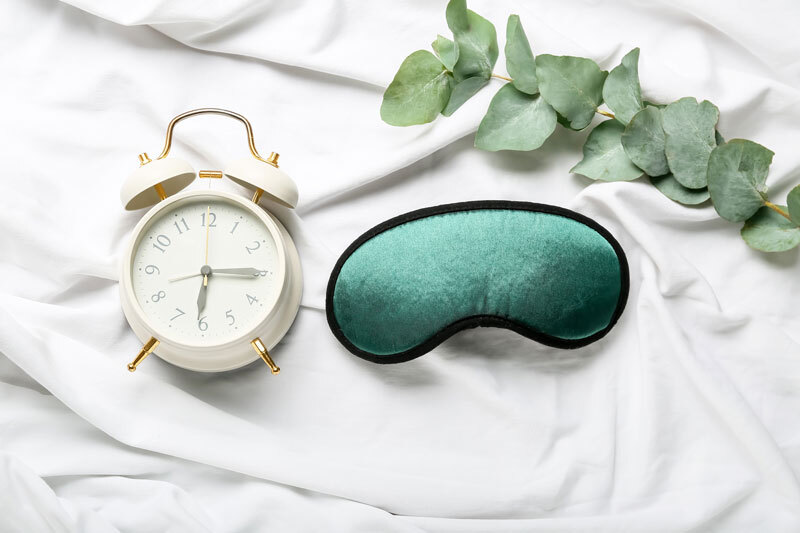Melatonin and magnesium are two of the most popular natural sleep supplements. While melatonin has been the go-to sleep aid for decades, it’s sales almost doubled in 2020! Magnesium, on the other hand, only recently debuted as a natural born star in the sleep aid market. Research shows that both magnesium and melatonin offer benefits for a deep and restful sleep—but what’s the difference between the two, how exactly do they work, and which one is the better sleep aid? We’re answering these questions and more in this article.
What is melatonin?
Melatonin, a metabolite of serotonin (known as the happy chemical), is a hormone that the brain’s pineal gland produces at night to send a single to the body that it’s time to hit the hay. Unfortunately in today’s society, blue light from screens and indoor lighting can confuse the brain into thinking that it’s daylight and withhold melatonin secretion—ultimately messing with your natural circadian rhythm.
Researchers have studied the hormone since the mid 1990s and confirmed that supplementing with melatonin can help with jet lag and sleep disorders to fall asleep faster. The downside to this has been that while the sleep aid helps you get to sleep faster, it doesn’t help with duration or quality, and some people can experience headaches or grogginess.
What can magnesium do for sleep?
Magnesium is a critical mineral in the body that plays a hand in over 300 biological reactions. Like melatonin, magnesium is also naturally produced in the body but societal contributors to deficiencies come from soil depletion, poor diets, and medication use rather than electronics.
Magnesium comes in many different forms and some are more efficient in certain cases than others. When it comes to sleep promotion, magnesium glycinate seems to be the most effective.
Magnesium glycinate is a combination of magnesium and the amino acid glycine, which can promote healthy neurological function and better sleep quality. One study found that a magnesium glycinate supplement helped to ease insomnia and lead to a longer, deeper sleep by increasing melatonin levels and decreasing cortisol (our stress hormone).
Many individuals use magnesium for its ability to induce muscle relaxation (especially important for those with restless leg syndrome) and ease stress. Its calming properties also play an important role in activating GABA receptors in the brain, which have a balancing and relaxing effect on the nervous system.
Melatonin Vs. Magnesium for Sleep
If you’re trying to decide which sleep aid is better, you need to get clear on what you’re looking for. If you have a wonky work schedule that requires you to work through the night or you are constantly flying and experiencing jet lag, melatonin can help you wind down—even when it’s light outside. However, there is not much research that shows the long-term side effects of taking melatonin every day so only take it when it’s absolutely necessary. This way, your body won’t rely on the supplement and still remember how to secrete melatonin itself. The recommended dose is .5-5mg, but staying at 1mg and below should still help promote a quick doze off time regardless.
If you suffer from restless leg syndrome or racing thoughts, magnesium may be a better natural sleep aid option for you. Magnesium will get you to sleep faster and help you stay asleep longer.
Magnesium helps to calm down the nervous system, preparing the brain to go into calm mode. And because magnesium is a mineral (which most Americans are deficient in) and not a hormone—there is less concern with taking it everyday. But of course, always talk to your doctor before introducing a new supplement into your daily routine.
Like we’ve learned above, melatonin is helpful for signaling your body to get to sleep. So while both will help you fall asleep faster, magnesium will help you stay asleep longer and you’ll have a better chance of feeling refreshed when you wake up.
Other ways you can help promote a more restful sleep is investing in blue light glasses, lighting candles when the sun goes down, and creating a routine with the best essential oils for sleep.
We also have a product guide for the best sleep ever and we talked about why sleep is so important in this podcast episode.





READ the Latest
Health Habits
Longevity
Health Habits
Health Habits
5 Comments